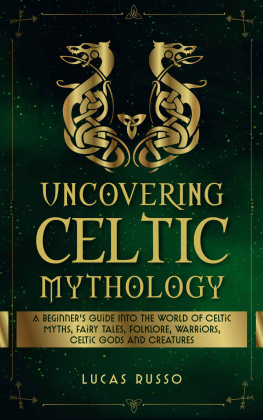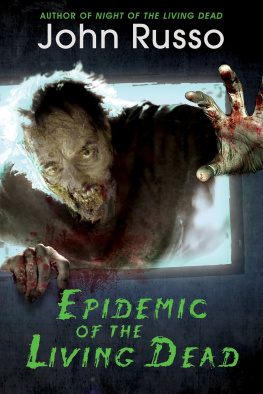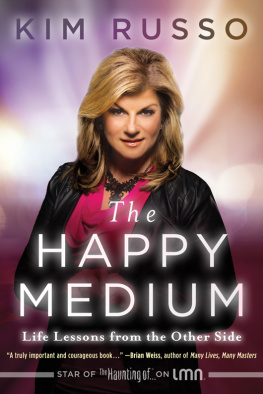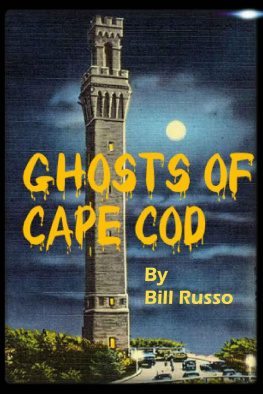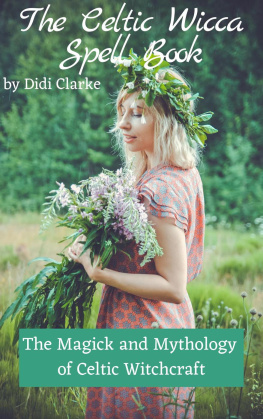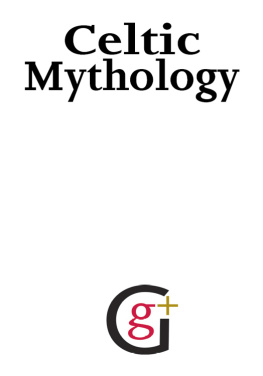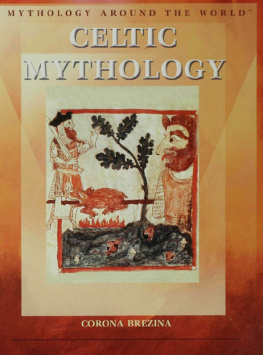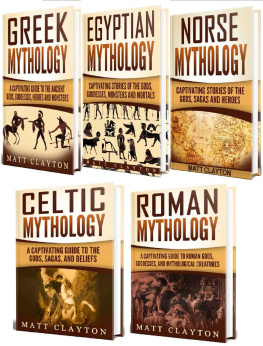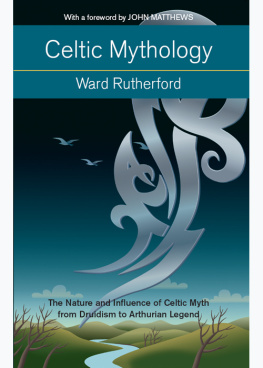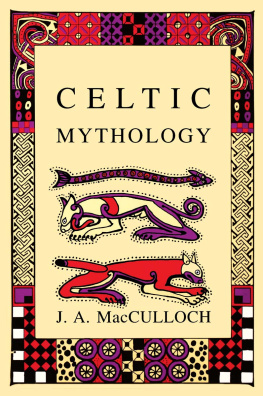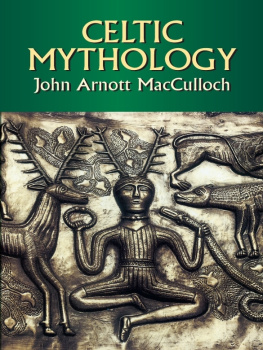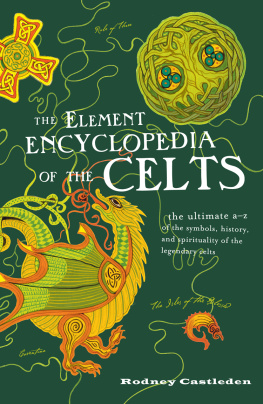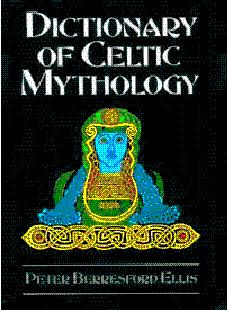Russo - Uncovering Celtic Mythology
Here you can read online Russo - Uncovering Celtic Mythology full text of the book (entire story) in english for free. Download pdf and epub, get meaning, cover and reviews about this ebook. year: 2021, genre: Religion. Description of the work, (preface) as well as reviews are available. Best literature library LitArk.com created for fans of good reading and offers a wide selection of genres:
Romance novel
Science fiction
Adventure
Detective
Science
History
Home and family
Prose
Art
Politics
Computer
Non-fiction
Religion
Business
Children
Humor
Choose a favorite category and find really read worthwhile books. Enjoy immersion in the world of imagination, feel the emotions of the characters or learn something new for yourself, make an fascinating discovery.
Uncovering Celtic Mythology: summary, description and annotation
We offer to read an annotation, description, summary or preface (depends on what the author of the book "Uncovering Celtic Mythology" wrote himself). If you haven't found the necessary information about the book — write in the comments, we will try to find it.
Russo: author's other books
Who wrote Uncovering Celtic Mythology? Find out the surname, the name of the author of the book and a list of all author's works by series.
Uncovering Celtic Mythology — read online for free the complete book (whole text) full work
Below is the text of the book, divided by pages. System saving the place of the last page read, allows you to conveniently read the book "Uncovering Celtic Mythology" online for free, without having to search again every time where you left off. Put a bookmark, and you can go to the page where you finished reading at any time.
Font size:
Interval:
Bookmark:
Uncovering Celtic Mythology
A Beginner's Guide to The World of Celtic Myths, Celtic Folklore, Warriors, Celtic Gods, and Creatures
Lucas Russo
Copyright 2021 - All rights reserved.
The content contained within this book may not be reproduced, duplicated or transmitted without direct written permission from the author or the publisher.
Under no circumstances will any blame or legal responsibility be held against the publisher, or author, for any damages, reparation, or monetary loss due to the information contained within this book, either directly or indirectly.
Legal Notice:
This book is copyright protected. It is only for personal use. You cannot amend, distribute, sell, use, quote or paraphrase any part, or the content within this book, without the consent of the author or publisher.
Disclaimer Notice:
Please note the information contained within this document is for educational and entertainment purposes only. All effort has been executed to present accurate, up to date, reliable, complete information. No warranties of any kind are declared or implied. Readers acknowledge that the author is not engaged in the rendering of legal, financial, medical or professional advice. The content within this book has been derived from various sources. Please consult a licensed professional before attempting any techniques outlined in this book.
By reading this document, the reader agrees that under no circumstances is the author responsible for any losses, direct or indirect, that are incurred as a result of the use of the information contained within this document, including, but not limited to, errors, omissions, or inaccuracies.
During my study of the Greco-Roman antiquity period, I stumbled upon Julius Caesars encounters with the Celtic people of Gaul. Over the course of the 9-year Gallic wars, Caesar documented all that he could about the culture and beliefs of these people. While doing so, he began to draw connections between the German and Celtic gods to those that were followed in Rome. These wars were decisive to the Romans in securing victory over the many Gallic tribes. Despite the victories and colonization of these areas, the Celtic culture continued to thrive in the current countries of the United Kingdom and Ireland.
Suffice to say, the use of syncretism, or the overlap of beliefs and practices across nations, piqued my interest in the Celtic peoples and the origins of their surviving culture. The modern-day British Isles stand as a representation of the mix of cultures that swept across Europe throughout the Iron Age through the Middle Ages. Polytheistic and monotheistic societies and religions were combined and reinterpreted, resulting in unique and blended cultures.
To this day, the Celts are famed for their deeply intricate art styles, unique burial practices, and the ever-popular description of red-headed braves throughout popular media. The Celtic culture stands among other cultural and historical giants, such as the Romans, the Greeks, and the Germanic peoples. Ireland, Scotland, Wales, and Great Britain continue to hold onto the remains of this great ancient history. Historic castles and forts mark the skyline of the isles, as do oral traditions and histories of folktales, mythical creatures, and heroic figures, all told in their mother languages or the closest modern variants.
Ancient Celtic culture continues to bear influence over modern cultures and media. Many of the legends, beasts, and heroes find themselves repeatedly retold or reimagined. Of course, this isnt exclusive to Celtic traditions; we see the same with Norse, Greek, Roman, and many other polytheistic cultures. What keeps us returning to these ancient roots?
Mythology has always played a major role in cultures around the world, through every era in history. While we know in modern days how volcanoes work and how weather systems impact a variety of crops and natural cycles, in ancient times mythology provided comfort and significance in these unknown patterns. Being able to give hardship and success meaning helped to shape cultures and traditions. Mythology gave the human race a way to process life and death, explain natural phenomena, as well as give meaning to tragedies, such as the spread of illness through the tribes, famine, and any emotional or mental distress. In turning to mythology, we make sense of the deepest of tragedies, and find joy in the most overwhelming of emotions. When you look into the pantheons of polytheistic mythology, we see that the deities of worship were never made to be perfect idyllic beings, but were truly made as humans are: flawed, but capable of overcoming the greatest adversity.
When we study ancient mythology, we get a clearer view of what our ancestors lived through and the ideals they held in high regard. Throughout the ages, deities rose and fell in popularity, depending on the requirements of the culture. When faced with adversity and war, it only made sense that gods of war would come into higher worship. When it came time to bless the sown seeds, gods of fertility received offerings throughout the tribes. When it comes to seeing what it was that the ancient peoples found value in, we need look no further than the myths that were cherished and passed down through the generations.
Living in a world where science meets fiction, where the phenomena that once perplexed our ancestors are easily explained by a barometer and careful observation, it can be easy to wonder why we still turn to ancient mythology. After all, when we see the lightning streak across the sky, we know better than to think that Thor is actually racing across our sky in his chariot, right? We understand the way lightning is created within our clouds, and released as vibrant energy. So what purpose does mythology hold in our modern world?
In many ways, these myths still hold the same significance to us as they did to our ancestors. When the Celts went to war, they turned to the Mrrgan, calling for her to stand with them and guide them as the fiercest goddess on the battlefield. Today, when we know that we are about to battle, whether its our own internal demons or fighting with external issues and pressure, we rely on the tales of the Mrrgan so that we can draw from her strength. We turn to these stories to learn from them and aim to better ourselves as we pursue our goals in the image of these gods.
Even today, we have modern-day myths and legends. If you look into the near past, we have the stories of Paul Bunyan and his ox. In the present, we can see these stories at work within our media. One thing that carries forward is the human desire to tell stories. Instead of telling stories of Brigid, we tell stories of Batman and Deadpool, seeing ourselves in their greatness and downfalls. We retell the stories of great battles in history the same way ancient civilizations did. Instead of them being oral traditions, we instead have movies, like Valkyrie and We Were Soldiers : dramatizations based on true events, retold for both education and inspiration, as well as entertainment. We look at the greatest beings of our lifetimes and tell their stories, creating modern legends out of the great men and women who led movements and fought to make our culture better.
In looking at the great tales of ancient Celtic mythology, we can understand the culture, and the way these civilizations lived their lives. In the telling of these mythological giants and powers, we see more than just the values of these people. We see what they aspired to be, what they view to be true success and greatness, and what they understand of the world. We can see the state of their economies through what we know was being left as offerings, what they feared based on the creatures that were created, and their overall worldview. In todays world, these tales, deities, and creatures continue to inspire us to create and teach.
Font size:
Interval:
Bookmark:
Similar books «Uncovering Celtic Mythology»
Look at similar books to Uncovering Celtic Mythology. We have selected literature similar in name and meaning in the hope of providing readers with more options to find new, interesting, not yet read works.
Discussion, reviews of the book Uncovering Celtic Mythology and just readers' own opinions. Leave your comments, write what you think about the work, its meaning or the main characters. Specify what exactly you liked and what you didn't like, and why you think so.

